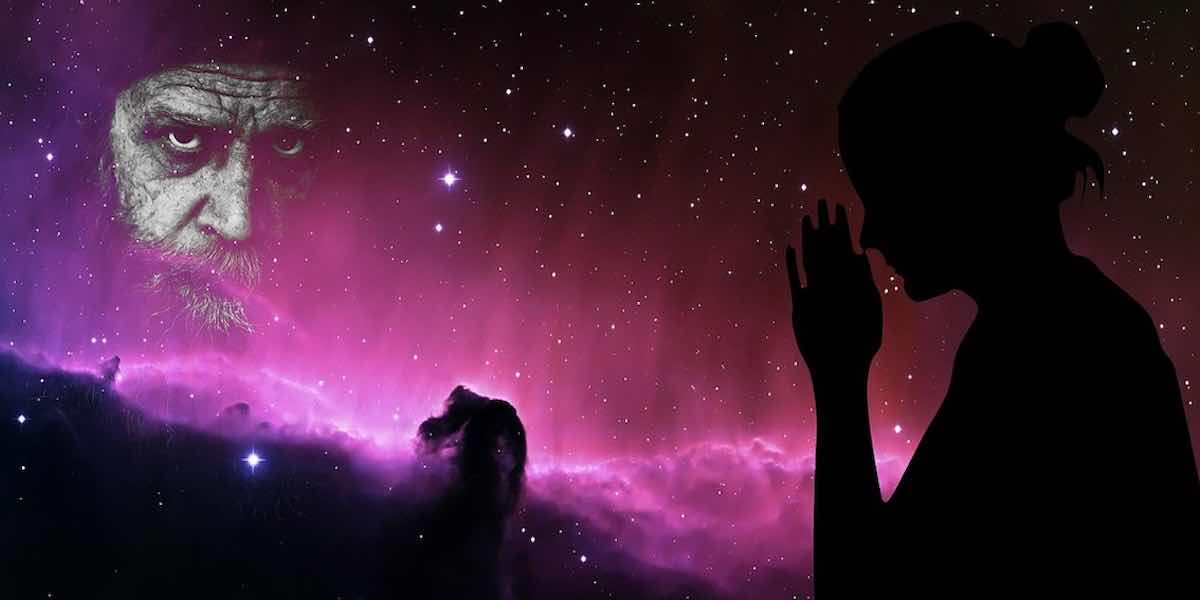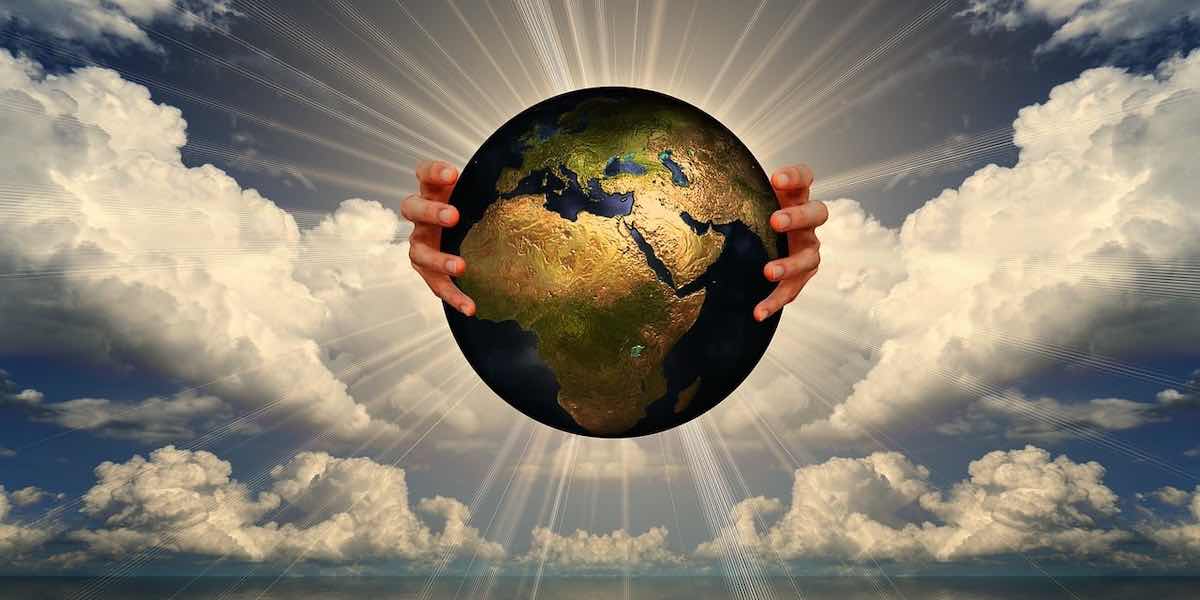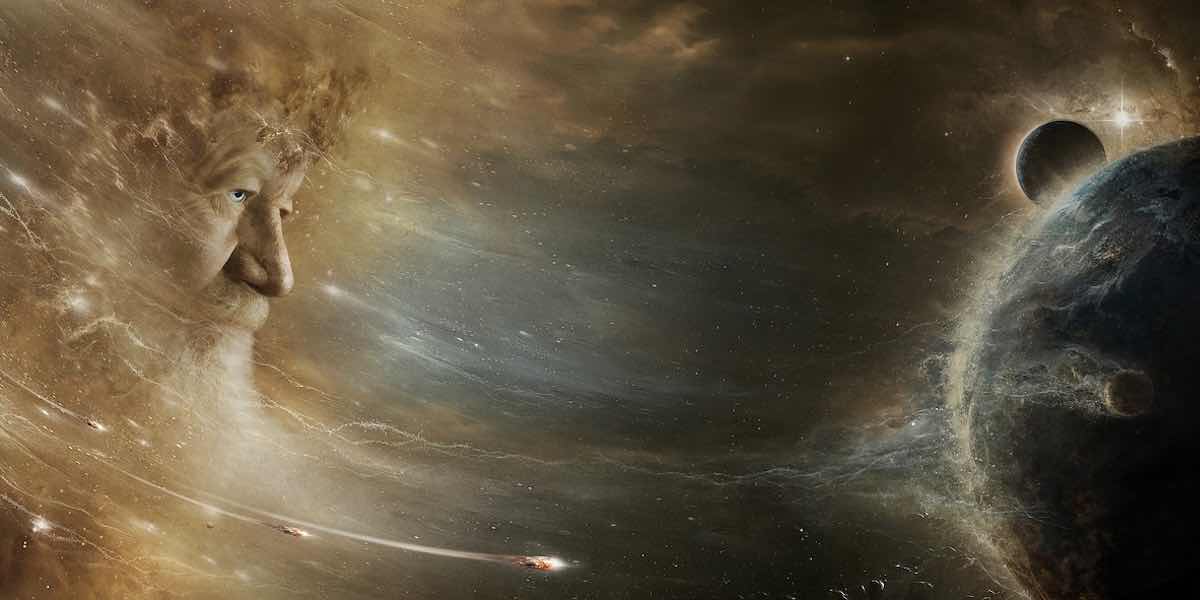
Many religions suggest that there is a creator of life and the universe. This article is not meant to argue with beliefs but to discuss alternative views to determine the origin of God and how He created the Universe?
If God is not a physical being, He is not limited to the laws of physics or restricted by time. But where was He before the beginning?
I'll examine the theory of time and how God might have used it to His advantage. I'll also discuss whether gravity caused creation or if God created gravity to let everything fall into place. I also consider how God Himself came into existence.
According to Genesis 1.1, "In the beginning, God created the heavens and the Earth." But who created God? From where did He originate?
Various religions have different solutions, such as claiming that gods beget other gods. Christianity claims that God has always existed. If God was always around, I wonder, "What was God doing before the beginning?"
A better question is, "What was the beginning?" If one describes the beginning as the period between the existence of nothing and everything, then where was God during the existence of nothing?
If He, Himself, was non-existent, then from where did He originate? More importantly, when did He come into being?
Was God around before the beginning?
That's impossible because the definition of "beginning" implies that nothing existed before that time.
Did God appear after the beginning?
That can't be correct either because we're saying that He created the heavens and the Earth in the beginning. Therefore, He had to be there already.
What other option is there?
The only option left is to say that He came into being at the same instant that the universe began. That should satisfy our inquiring minds.
But wait a minute. God created the heavens and the Earth. Doesn't that mean that He created the universe? I have a problem conceiving the instant of time that separates nothing from everything.
What happened at that moment? How long did that "moment" last? To answer that question, we need to consider the limitations of time. Time may have boundaries. Time is restricted to being between a beginning and an end. Or is it?
St. Augustine, a theologian in the 4th century, thought about where God may have been before creating the universe. He considered the idea that if God did indeed exist, he created time.
But if that were so, without time, there was no "before" in the period before the Big Bang. So, there would have been no place where God could have existed.
Even Albert Einstein came to a similar conclusion. According to his theory of relativity, time slows down with increased mass. If the mass of the entire universe existed in a space smaller than a subatomic particle, as scientists describe it before the Big Bang, then time would have effectively been at a standstill. 1
Without the passage of time, God would have had an eternity to do His creative work! However, that still leaves me wondering where He was. It contradicts the reasoning I just described.

Did gravity cause creation, or did God create gravity and let everything else fall into place?
Gravity pulls everything together. The force of gravitational attraction is proportional to the mass of the objects. However, gravity wouldn't have existed if there were no objects before creation.
We know the universe has been expanding ever since the last Big Bang. That expansion is measurable with present technology.
Gravity is a force. We might say it's a force of nature—or a law of physics. Or did God decide it was required so all His creations would stay together in a precise universe?
After all, the law of gravity is precise. It can be measured and mathematically replicated in computer simulations.
Eventually, the gravitational pull of all the galaxies will overpower the expansion (based on the law of diminishing returns), and the universe will start falling in on itself again. Finally, it contracts into a black hole, which ultimately will explode as another big bang.
The force of gravitational attraction is proportional to the mass of the objects. However, gravity wouldn't exist if there were no objects before creation. So, what came first?
We take the law of gravity for granted. We usually don't think about it, but the laws of physics are based on the natural laws of gravity—keeping our world and everything in it in its place.
I take things a step further in my thoughts. That brings me to imagine what went on in God's mind. Was gravity something that He realized was necessary to hold the universe together in a non-chaotic condition? Or was it just a fluke that occurred when He put all the pieces together?

God might have been busy creating numerous complex scenarios to observe and discover which works best.
Our state of "existence" might have many alternate realities that simultaneously occur. Each reality may be following different paths. There may even be an infinite number of realities.
Even if God created many versions of the universe, what is beyond it remains questionable. And if God created any universe, wouldn't it have required a more superior entity to have created God? Is there a Super-God out there?
Aristotle argued a cause-and-effect theory. There must be a reality that caused God to exist. For that matter, that implies an infinite number of causes and a reality beyond our reckoning. So, even a Super-God would have had to be created by some greater power to cause that existence. 2
So, what's outside the universe? We tend to think of the universe as "everything." As it keeps expanding, its boundaries separate it from everything beyond.
Oops! Did you catch that? Isn't what I just said a contradiction in terms?
If I claim that there is something beyond the universe, then that which is within the universe cannot be everything. Can it?
As intelligent human beings with limited vision, we need a frame of reference. But that limits our ability to comprehend reality. Scientists once believed that the Earth was the center of the universe. Then, it was thought that the Milky Way represented the entire universe.
As technology provides a means to look farther into space, we acquire a better understanding of what's out there. But we will forever have a limited frame of reference, which is unfortunate.
We can't think outside the box as long as we are in it. We can only guess, speculate, and dream up our thoughts and ideas. Even Einstein realized the limitations of our comprehension:
There is a lot to consider in understanding our existence. We have the intelligence to analyze our world and learn a lot about the laws of physics and how the universe works. However, much of our understanding is solely based on theory and interpretation.
We feel a need to know where we came from, as well as how and why we got here. Unfortunately, this knowledge is something that we may never acquire.